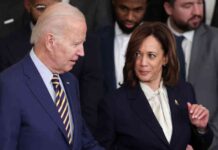The Impact of Presidential Election on ICHRA and Health Insurance Market
As the 2024 presidential election approaches, the future of health care policies, particularly regarding the Individual Coverage Health Reimbursement Arrangement (ICHRA), hangs in the balance. Over the past few years, the health care market has seen significant changes with the introduction of ICHRA, which allows employers to provide a tax-free allowance to employees to purchase health insurance on the individual market. While ICHRA has been a bipartisan effort, the policies implemented under the next administration could have a profound impact on its future. Let’s delve into how the candidates and their party platforms might influence the ICHRA market going forward.
Tax Credit Complications
One imminent issue in Congress that could affect the health insurance market regardless of who wins the presidential election is the expiration of enhanced tax credits in 2025. The Inflation Reduction Act, passed in 2022, extended tax credits established in the Covid-19 Stimulus Package, which increased subsidies for low-income households and expanded coverage to millions of Americans. These tax credits were instrumental in the growth of the individual market from 14.1 million people in 2020 to over 21 million in 2024.
Democrats have shown support for continuing the increased tax credits, while Republicans are more inclined to let them expire. If the tax credits are discontinued, many individuals, especially those in good health, may opt to drop their ACA plans due to high costs and seek alternative options. This could lead to a shrinking individual market, impacting the competitiveness and quality of individual plans, which in turn could affect the appeal of ICHRA.
On the flip side, the discontinuation of tax credits would mean that employees, particularly those in hourly positions, would benefit from receiving tax-free dollars from their employers since they would no longer qualify for government subsidies. This could potentially encourage employers who have been hesitant to implement HRAs to reconsider ICHRA or the Qualified Small Employer Health Reimbursement Arrangement (QSEHRA) to support their employees.
Potential Impact of the Presidential Candidates’ Platforms
As we look ahead to the potential policies of the presidential candidates, there are key considerations that could influence the future of ICHRA and the health insurance market. Here are some insights into how each candidate and their party platforms might impact ICHRA:
Democratic Candidate and Party Platform
The Democratic candidate and party platform are likely to support the continuation of enhanced tax credits beyond 2025. This would be in line with their emphasis on expanding access to affordable health care and reducing out-of-pocket costs for individuals. The Democratic approach could provide stability to the health insurance market and support the growth of ICHRA by ensuring that individuals have access to affordable coverage options.
Republican Candidate and Party Platform
On the other hand, the Republican candidate and party platform may lean towards allowing the enhanced tax credits to sunset in 2025. Republicans have traditionally focused on reducing government involvement in health care and promoting free-market solutions. While this approach could lead to cost savings for the government, it may also result in challenges for individuals seeking affordable health insurance options, potentially impacting the uptake of ICHRA.
Implications for Employers and Employees
Regardless of the outcome of the presidential election, employers and employees will need to adapt to the changing landscape of the health insurance market. Employers may need to reassess their benefits offerings and consider the best options for supporting their employees’ health care needs. Employees, on the other hand, may need to navigate the evolving health insurance market to find coverage that meets their requirements and budget.
In conclusion, the 2024 presidential election could have far-reaching implications for the health insurance market, particularly regarding the future of ICHRA. The decisions made by the next administration will shape the direction of health care policies and could impact the accessibility and affordability of health insurance for millions of Americans. As we await the results of the election, it is essential for stakeholders in the health care industry to stay informed and prepared for the potential changes that lie ahead.

















